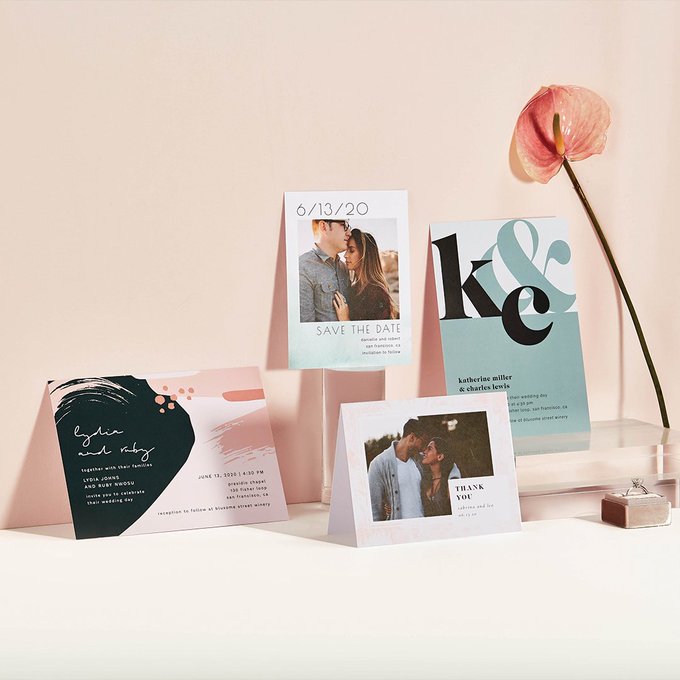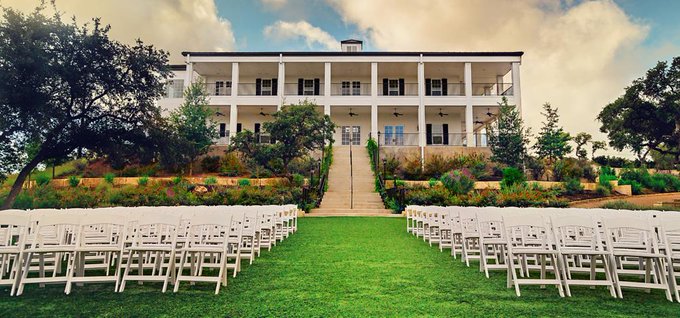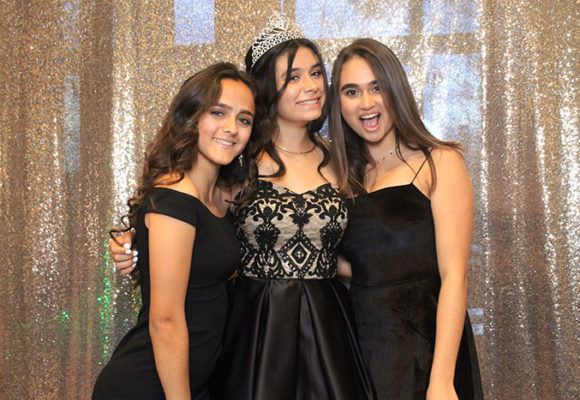Two days before the 154th anniversary of the ratification of the 13th Amendment, spokespeople for a few of the largest wedding planning resources in the country confirmed their publications will take steps to distance themselves from plantation weddings.
Pinterest and The Knot were two multimedia platforms that initially responded to a campaign launched by the civil rights advocacy group Color of Change, which asked companies to end features for plantations that had ties to slavery, according to a report by BuzzFeed News on Wednesday
“Weddings should be a symbol of love and unity,” a Pinterest spokesperson told FOX Business. “Plantations represent none of those things. We are grateful to Color of Change for bringing attention to this disrespectful practice. We are working to limit the distribution of this content and accounts across our platform, and continue to not accept advertisements for them.”
ENGAGEMENT RING SHOPPING: WHAT YOU NEED TO KNOW BEFORE YOU BUY THAT ROCK
Moreover, the representative at Pinterest clarified that the company has already begun implementing changes, which include limiting the distribution of plantation wedding content in autocomplete, search recommendations, email notifications and search engine optimization.
People will still be able to search for plantation wedding inspiration, but it will now show an advisory that some results may violate Pinterest’s policies. Ads also won’t appear under these specified pins or search queries, which is a significant step for the website’s 300 million monthly users.
“We’re doing this because everyone deserves to feel welcome and inspired when planning their wedding on Pinterest.”
The Knot and its former parent company, XO Group Inc., merged with global marketplace WeddingWire Inc. in December 2018 and officially became The Knot Worldwide, a resource that welcomes over 20 million visitors and serves over 700,000 wedding vendors – some of which are plantation venues.
“Our goal is to ensure that the content of all of our vendors on our sites is respectful and considerate to everyone,” a spokesperson at The Knot Worldwide told FOX Business regarding plantation weddings. “At The Knot Worldwide, we pride ourselves as a company by being inclusive to all — all sexes, genders, races, sexual orientations, religions, and more,”
“Color of Change brought an issue to light about the way venues with a history of slavery describe their properties to couples,” the spokesperson continued. “We’re currently working with Color of Change to create additions to our current content guidelines that will ensure all couples feel welcomed and respected on our sites.”
“These guidelines will prohibit any vendors on The Knot or WeddingWire from using language that romanticizes or glorifies a history that includes slavery. We will remove any vendors from our sites that do not comply. By creating these guidelines, we are providing a respectful experience for all couples, wedding professionals, and employees.”
LAVISH WEDDINGS ON YOUR MIND? WEDDING LOANS? HERE ARE THE PROS AND CONS
The Knot Worldwide isn’t the only mainstream wedding publication that’s taking a stand against plantation weddings. Brides, which was acquired by former 20th Century Fox CEO Barry Diller and his media company Dotdash in May, is working to scrub away the plantation weddings that were featured by its previous owner Conde Nast.
“Brides is an inclusive place where everyone can feel celebrated. Content glorifying plantations is not in line with our core values,” a Dotdash spokesperson wrote in a statement sent to FOX Business.
“We have removed these references and are actively working with Color of Change to evolve our guidelines to help ensure all our couples are supported, respected and inspired.”
CHEAP WEDDINGS ON THE RISE: HERE ARE THE PROS AND CONS
Although the response from major wedding resources to Color of Change’s campaign is well-intentioned, the issue has been largely painted as a binary racial divide that completely leaves out the African American couples who also wed on plantations, especially for those living in the South where these types of weddings are more common.
Ebony Horace, an event planner for Addictive Avents, was tasked with putting a wedding together at the Southern Oaks Plantation in New Orleans for her clients.
Considering that this was her first destination wedding, Horace was not offended by the request and was more than happy to take it on.
“I think because of how people feel about plantations in general and the overall backstory of it, but to be honest in planning this wedding, they didn’t give us that vibe at all,” Horace explained. “I think it was more so the experience and it gave the bride a theme that she wanted in terms of being a Southern gal and being from Louisiana herself. It didn’t give a vibe of being racial or anything like that.”
The Claytons married at the Southern Oaks Plantation in New Orleans, Louisiana.
When it comes down to plantation weddings in general, Horace believes they are an amazing choice for couples who like the look of a Southern estate. However, she did note that if a facility or location feels disrespectful, people have the right to look at alternative venues.
Horace also noted that for some African Americans, getting married on a plantation is a well-thought-out reclamation of power. This was very much the case for her bride, who provided the following statement regarding her choice of venue:
“Being from the south, plantations, cotton fields, sugar cane fields and etc. are just a part of our heritage. Sometimes a painful part, but we must embrace it. Think of the joy this day would bring to those that once worked on this plantation! I am my ancestors’ wildest dreams.”
Additionally, the bride and groom celebrated their nuptials by jumping the broom in their ceremony – a tradition that has some roots going back to American slavery but is not undergoing editorial censorship at this time.
For wedding photographer Kate Hampson, who captured the event, the experience was a positive one. Though, she recognized that a venue such as this isn’t for the faint of heart and shouldn’t be selected to solely fulfill a “princess” fantasy.
“For my couple to be married at a plantation is a huge deal, considering it was not allowed in the past,” Hampson said. “I feel plantations are a beautiful choice of venue, however, I think couples planning to marry at one should know about and respect the history behind them”
GET FOX BUSINESS ON THE GO BY CLICKING HERE
Not all wedding platforms are rushing to adopt changes.
Martha Stewart Weddings told FOX Business, “We thank Color of Change for bringing this valid concern to us. We feature how couples have chosen to wed and celebrate their special day. We will give this careful thought and attention.”
Wedding planning and online registry Zola did not immediately respond to FOX Business’ request for comment, but a spokesperson told BuzzFeed News, “After reviewing this complaint we determined it did not violate our non-discrimination policy. While we may not always agree with couples on all of their wedding details, we also respect their right to choose where and how they want to get married.”
By Thursday, the same Zola spokesperson updated BuzzFeed News that the platform is reevaluating its policies and has removed plantations as a wedding venue option for users.
FOX Business reached out to a number of Southern publications and platforms dedicated to featuring people of color that have highlighted plantation weddings in the past but did not receive confirmation whether there will be policy changes there as well.
It is not clear how public disavowal from top platforms and subsequent limitations will impact the business model of plantation venues and the overall representation of African Americans in these spaces – particularly for the couples and wedding vendors from Southern states who are submitting plantation-affiliated content for feature consideration.
Color of Change did not specify how guideline revisions are going with participating wedding platforms, but the nonprofit’s vice president, Arisha Hatch, did offer an impassioned statement to FOX Business on how the campaign came to be.
“The wedding industry makes hundreds of millions of dollars in profit by promoting plantations as romantic places to marry, and in doing so, routinely denies the violent conditions Black people faced under chattel slavery,” Hatch wrote.
“Plantations are physical reminders of one of the most horrific human rights abuses the world has ever seen, which, over the course of the Atlantic Slave Trade, enslaved 10.7 million Black people in the Americas.”

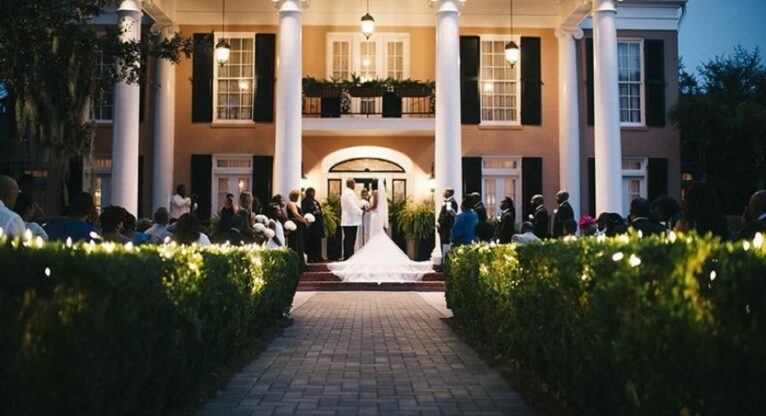



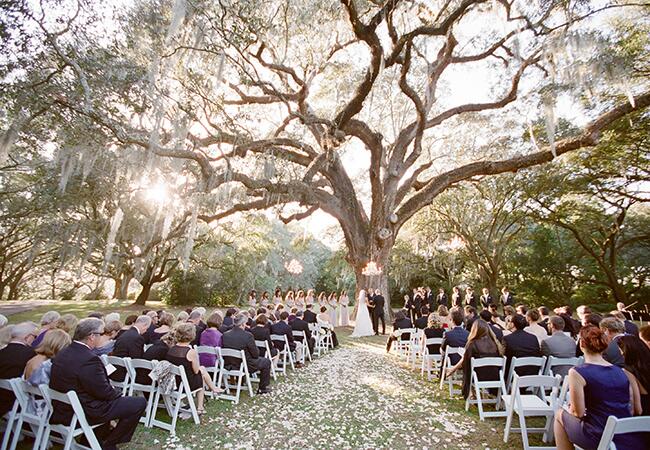

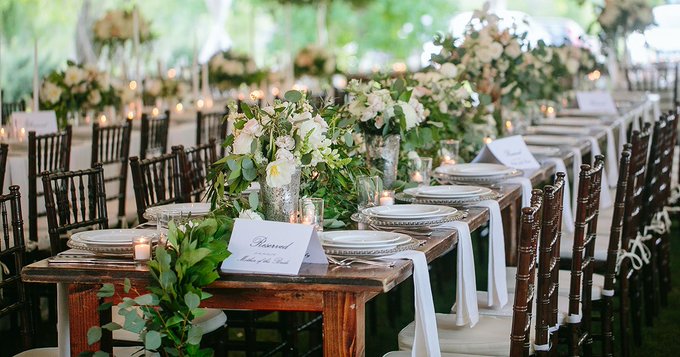
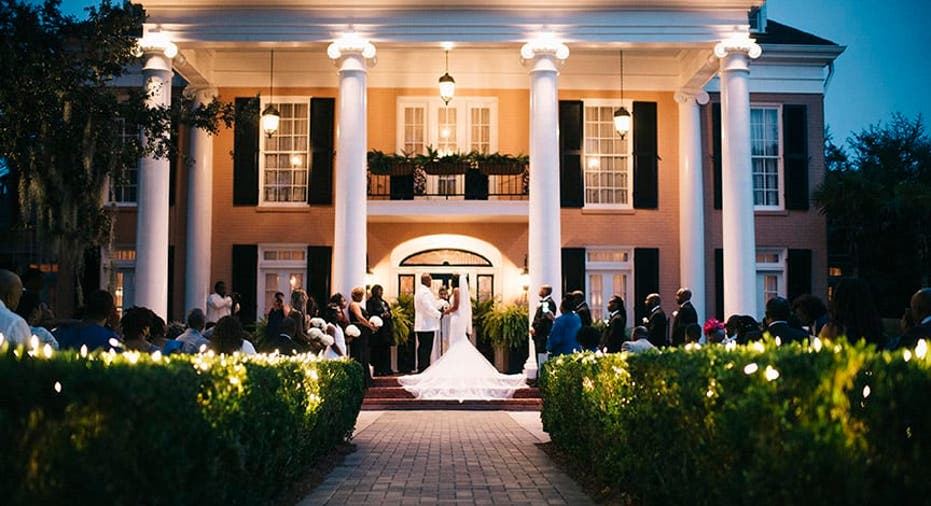



 Whether you lean bold and graphic or soft and vintage, ??we’ve got the perfect designs for you two. ??
Whether you lean bold and graphic or soft and vintage, ??we’ve got the perfect designs for you two. ??